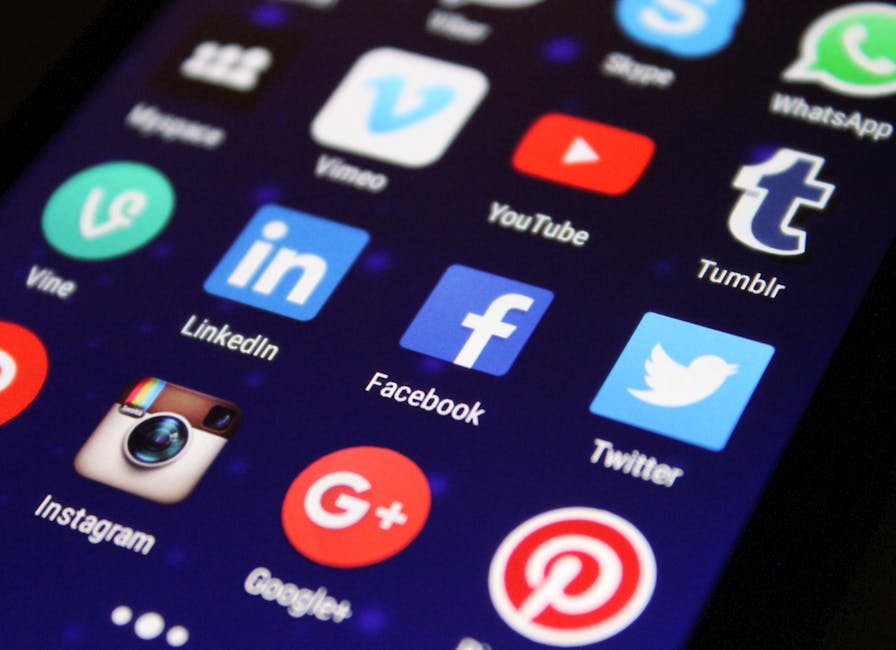Social media addiction is a growing concern in today’s digital age, with profound psychological implications. This blog post delves into the psychology behind this modern-day addiction, providing insights into why and how people get hooked on social media platforms. If you’ve ever found yourself endlessly scrolling through your feed, this post will shed light on the mechanisms at play.
Key Takeaways
- Understanding the psychological mechanisms behind social media addiction.
- Recognizing the effects of social media on the brain and mental health.
- Strategies to combat social media addiction.
- The role of social media platforms in exacerbating addiction.
- Taking control of social media use for better mental health.
Introduction to Social Media Addiction
Definition of Social Media Addiction
Social media addiction refers to the compulsive use of social media platforms to the point where it interferes with an individual’s daily life and well-being. It’s a form of behavioral addiction characterized by the need to constantly check and interact on social media platforms.
Overview of Psychological Impact
The psychological impact of social media addiction is vast and multifaceted. It can lead to a range of mental health issues, including anxiety, depression, and reduced self-esteem. Moreover, it can negatively affect one’s social skills and attention span.

Psychological Mechanisms Behind Social Media Addiction
The Hooked Model
The Hooked Model, as explained in this source, is a four-step process that tech companies use to build habit-forming products.
Trigger
The trigger is what prompts a user to use the product. In the case of social media, triggers can be external (like a notification) or internal (like boredom or loneliness).
Action
The action is the behavior done in anticipation of a reward. For social media users, this could be scrolling through the feed or posting a status update.
Variable Reward
Variable rewards are what keep users hooked. The unpredictability of what the next scroll will bring (a funny meme, a shocking news, a like on your photo) creates a dopamine-driven feedback loop.
Investment
The investment comes when users put time or effort into the product, which then prompts them to return. This could be building a profile, gaining followers, or creating content.
Exploitation of Psychological Principles
Social media platforms exploit certain psychological principles to keep users engaged.
Endless Scroll Feature
The endless scroll feature plays on our natural curiosity and desire for more. It’s akin to a never-ending treasure hunt, where the next ‘reward’ is always just a scroll away.
Personalized Content
By providing personalized content, social media platforms cater to our preferences and biases, making the experience more engaging and addictive.

Effects of Social Media on the Brain
Dopamine-Driven Feedback Loops
Just like gambling and substance addiction, social media addiction creates dopamine-driven feedback loops. Each like, comment, or share acts as a ‘reward’, triggering the release of dopamine, the ‘feel-good’ neurotransmitter.
Similarities to Gambling and Substance Addiction
The unpredictability of these rewards (you never know who will like your post or when) creates a scenario similar to gambling. This uncertainty keeps users checking their social media accounts, much like a gambler keeps pulling the lever of a slot machine.
Long-Term Psychological Effects
Over time, excessive social media use can lead to several long-term psychological effects.
Reduced Attention Spans
With the constant influx of information and the fast-paced nature of social media, users may experience reduced attention spans.
Diminished Self-Esteem
Comparing oneself to others on social media can lead to diminished self-esteem, especially among young users.
Impaired Social Skills
Excessive use of social media can also lead to impaired social skills, as it reduces face-to-face interactions and promotes superficial communication.

Recognizing Social Media Addiction
Patterns of Excessive Use
Recognizing social media addiction involves identifying patterns of excessive use. This could be spending several hours a day on social media, feeling restless without it, or neglecting other activities for it.
Impact on Real-Life Interactions and Responsibilities
Another sign is when social media use starts impacting real-life interactions and responsibilities. This could be ignoring work, studies, or personal relationships to spend time on social media.
Mental Health Consequences
Social media addiction can also lead to mental health consequences. This includes feelings of anxiety when not able to check social media or feelings of depression when not receiving enough likes or comments.
Anxiety
Anxiety can manifest as a constant need to check social media, fear of missing out, or restlessness when unable to access social media.
Depression
Depression can result from comparing oneself to others on social media, feeling inadequate, or not receiving the desired social validation.

Strategies to Combat Social Media Addiction
Setting Boundaries for Use
Setting boundaries for social media use is a crucial step in combating addiction. This could be limiting the time spent on social media, turning off notifications, or having designated ‘no social media’ times.
Utilizing Screen Time Monitoring Apps
Screen time monitoring apps can help track and limit social media use. They provide insights into how much time is spent on different apps and allow setting usage limits.
Engaging in Offline Activities
Engaging in offline activities can help reduce dependency on social media. This could be pursuing a hobby, spending time with loved ones, or practicing mindfulness.
Mental Well-being
Offline activities can greatly enhance mental well-being. They provide a break from the digital world and help in reconnecting with oneself and others.
Physical Well-being
Physical activities like exercise, yoga, or even a simple walk can help reduce screen time and promote physical well-being.
Seeking Professional Help
In some cases, professional help may be needed to overcome social media addiction. Therapies like cognitive-behavioral therapy and hypnotherapy have shown promising results in treating such addictions. You can learn more about this in our post on overcoming addiction through hypnotherapy.

Vulnerability and Social Media Addiction
At-Risk Youth
Youth are particularly vulnerable to social media addiction. Increased rates of mental health issues among young social media users are a growing concern. Our post on abnormal psychology provides more insights into this.
Increased Rates of Mental Health Issues
Studies have shown a correlation between excessive social media use and increased rates of anxiety, depression, and other mental health issues among youth.
Role of Social Media Platforms
Social media platforms play a significant role in exacerbating addiction. Platforms like Facebook, Instagram, TikTok, Twitter, and Snapchat are designed to be addictive, using various tactics to keep users engaged.
Facebook, Instagram, TikTok, Twitter, Snapchat
These platforms use features like personalized content, notifications, and endless scroll to keep users hooked. They exploit psychological principles to create habit-forming products.
Taking Control of Social Media Use
Understanding Psychological Triggers
Understanding the psychological triggers that lead to excessive social media use can help in taking control. This involves recognizing the feelings or situations that prompt social media use and finding healthier ways to deal with them.
Implementing Reduction Strategies
Implementing reduction strategies like setting usage limits, turning off notifications, and engaging in offline activities can help in reducing dependency on social media.
Conscious Efforts to Reduce Dependency
Taking control of social media use requires conscious efforts. It’s about making a deliberate choice to reduce dependency and prioritize real-life interactions and well-being over virtual validation.

Conclusion
Summary of Social Media Addiction Impacts
Social media addiction has far-reaching impacts, affecting individuals’ mental health, social skills, and overall well-being. It’s a complex issue, driven by psychological mechanisms and exploited by the very design of social media platforms.
Encouragement for Proactive Management
However, with understanding and proactive management, it’s possible to use social media responsibly. It’s about finding a balance, where social media is a part of life, not the center of it. Remember, it’s never too late to start making changes. So, why not start today?
For more insights into the psychological aspects of social media addiction, check out our posts on the impact of digital detoxes on stress and anxiety and social psychology.
Curious Minds Want to Know: Unraveling the Mysteries of Social Media Addiction – FAQ
What is social media addiction?
Social media addiction refers to the compulsive use of social media platforms that becomes so integral to a person’s daily activities that it interferes with work, school, and relationships. It’s characterized by an overwhelming desire to log on to or use social media, so much so that it impairs other important areas of life.
How does social media trigger addiction?
Social media triggers addiction through a system of rewards, such as likes, shares, and positive comments, which stimulate the brain’s reward system. This release of dopamine, a feel-good neurotransmitter, encourages continued use of social media, similar to how gambling or substance addiction works. Over time, users need to spend more time on social media to get the same dopamine ‘high’.
Are there signs that someone is addicted to social media?
Yes, there are several signs of social media addiction, including spending a lot of time thinking about social media or planning to use it, feeling urges to use social media more and more, neglecting or reducing other activities due to social media use, and experiencing withdrawal symptoms like anxiety or depression when not using social media.
Can social media addiction affect mental health?
Absolutely. Social media addiction can have a significant impact on mental health, leading to issues such as anxiety, depression, loneliness, and reduced self-esteem. The constant comparison with others, fear of missing out (FOMO), and exposure to cyberbullying are factors that can contribute to these mental health issues.
What can be done to manage or overcome social media addiction?
Managing or overcoming social media addiction involves several strategies, including setting specific times for social media use, finding alternative activities to fill your time, using apps that limit your social media use, and seeking support from friends, family, or professionals. It’s also helpful to be mindful of your social media habits and the reasons behind them.
How does social media addiction differ among various age groups?
Social media addiction can affect all age groups but in different ways. Younger individuals, especially teenagers, may be more susceptible to peer influence and social comparison, leading to higher rates of addiction. Adults, on the other hand, might use social media excessively for networking or professional reasons. Each age group faces unique challenges and pressures that can contribute to social media addiction.
Is it possible to have a healthy relationship with social media?
Yes, it’s possible to have a healthy relationship with social media by using it in moderation and for positive purposes, such as staying connected with friends and family, seeking support, or learning new things. Being conscious of why and how you use social media can help you maintain control over your usage and prevent it from negatively affecting your life.
What role does social comparison play in social media addiction?
Social comparison plays a significant role in social media addiction. Constant exposure to the highlight reels of others’ lives can lead to feelings of inadequacy, jealousy, and dissatisfaction with one’s own life. This can drive individuals to spend more time on social media in an attempt to enhance their own online presence or to escape from negative feelings, thereby fueling the cycle of addiction.



